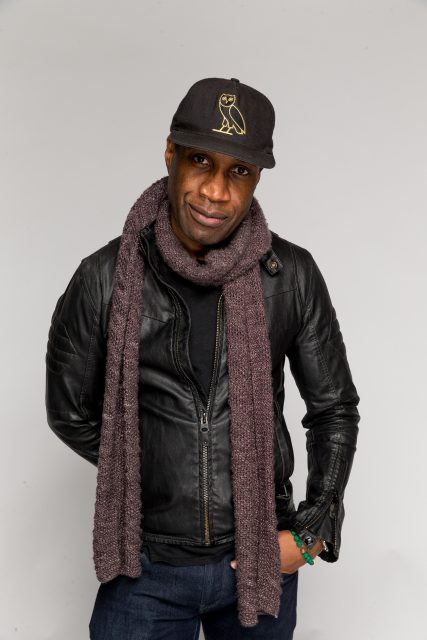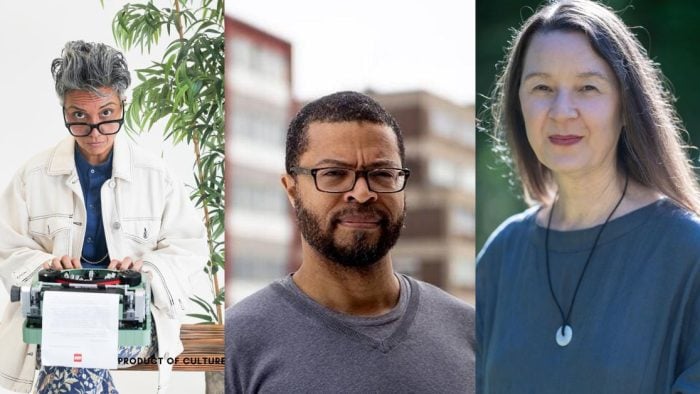Clement Virgo talks Steal Away ahead of thriller’s TIFF debut
Veteran director Clement Virgo proves you’re never too old to try something new. The follow-up to his award-winning drama Brother is the psychological thriller Steal Away. Based on a real-life slave narrative, but with a modern-day twist, the film will premiere at TIFF.

Thirty years ago, director Clement Virgo burst onto the scene with the release of his debut feature Rude, a bold drama recounting the turbulent lives of young Black men and women living in Toronto.
Subsequent films such as Love Come Down, Poor Boy’s Game and Brother, which won the 2023 Canadian Screen Award for Best Motion Picture, and TV work, including the acclaimed miniseries The Book of Negroes, have cemented Virgo’s place as one of the country’s most accomplished filmmakers.
His new film, Steal Away, is a departure for the 59-year-old in that it is his first psychological thriller and his first foray into co-production. The film was funded by the CMF as well as French, Dutch and Belgian producers. It will have its world premiere as part of the Special Presentations program at the Toronto International Film Festival (TIFF), which kicks off its 50th edition next week.
The movie is based on the narrative non-fiction book Steal Away Home by Canadian author and historian Karolyn Smardz Frost, which recounts the true story of 15-year-old escaped slave Cecelia Reynolds, who finds freedom in Canada only to return to her childhood home in Kentucky as a free woman many years later.
However, this adaptation from Virgo and his co-screenwriter Tamara Faith Berger (also his wife) is set in modern-day Belgium, where mysterious refugee Cécile (Mallori Johnson) is taken in by a charitable family. The family’s teenage daughter Fanny (Angourie Rice) develops a fascination with Cécile that borders on the obsessive.
We caught up with Virgo via Zoom in the weeks before Steal Away’s TIFF debut to talk about his love of thrillers, making a film in Europe and how he’s evolved as a filmmaker.
How are you feeling now that the film is about to premiere?
I'm feeling a combination of excitement to share the film and a little vulnerability. After you spend two or three years making a film and you're about to share it with the world you feel vulnerable, but I am excited to see how an audience at TIFF and audiences in general respond.
What drew you to the project?
Karolyn Smardz Frost’s book, Steal Away Home, was sent to me and it’s a bit of a slave narrative, which I did not want to do. But reading that book made me think of how modern it was in some ways. Even though times have changed, some of the ideas are still the same. I wanted to explore that. And it talks about some of the things that are happening now with people who are displaced, refugees, and how bodies are used in labour. It is a film about now while also speaking about the past.
How do you describe the film?
It’s a psychological thriller about a young woman, Cécile, who arrives in this home, and in this home is another young woman, Fanny, and they form this deep bond. And within this family there’s a secret that we’ll discover.
You aren’t revealing much. I assume, as it’s a psychological thriller, you’re careful not to reveal any spoilers.
Yes. I’ve made many dramas but this time around I was interested in exploring the thriller genre, especially the psychological thriller, which is something I've always been curious about. I was very intrigued by trying to figure out if I could make a thriller. I love movies like The Stepford Wives or Rosemary’s Baby.
Did you watch those movies ahead of time in preparation? Did you re-watch Rosemary's Baby?
Yes, just in terms of the tone, just to get a sense of what other filmmakers have done in this space. A film like Rosemary's Baby is all about point of view. Everything is from Rosemary's point of view and you don't get any other perspective. So you get locked into her perception of the world. It's very classic in some ways and it goes back to Alfred Hitchcock’s Gaslight. He used the same technique. It's hard to make a thriller without thinking about people like Hitchcock and other filmmakers who work in the thriller space, like David Lynch, who recently passed.
You shot the film in Belgium. What was that like?
It was my first time shooting in Europe. Belgium is an interesting and unique country. It's a very small country, but they speak two different languages. You have the Flemish side, which we shot mostly on, and that side is connected to the Dutch and the Netherlands. Then you have the other side, the French side, and it's a completely different world. It was great to be immersed in that culture and delve into their history. Part of the history of Belgium is their colonial history with a place like Congo. We used those elements and that history as part of our film.
You are in the unique position of collaborating with your wife, the author and screenwriter Tamara Faith Berger. She adapted her own book, Lie With Me, for your film back in 2005. How would you describe your working relationship?
It's quite easy. We know each other well. She's a very gifted writer and she's always my first reader. Your partner can know how to talk to you about your work — when to push you, when to be gentle, when she senses you're vulnerable and need a little bit of handholding. And knowing when to say, “This is crap, you can do better.” If I write something and I give it to her to read, I can sense her reaction and I know how much work I have to do.
Looking back on your career, how do you think you’ve changed, or evolved, as a director?
When I was a younger filmmaker I was trying to control everything. I was trying to control the whole process, what happened on the set, control the actors and the camera and everything. But as I get older as a filmmaker I trust my instincts more and trust that sometimes you walk on the set and you may not know what you're going to do but you have that muscle memory that will help you navigate.
And to have the kind of humility, vulnerability and confidence to say, okay, let me see what the actor is offering without trying to control what I think it is. And to be open to the accidents. Because that’s really the filmmaking process in some ways — being there to capture the unexpected. I always have a sense of what it is that I want but I leave space for that surprise and for the unknown.

